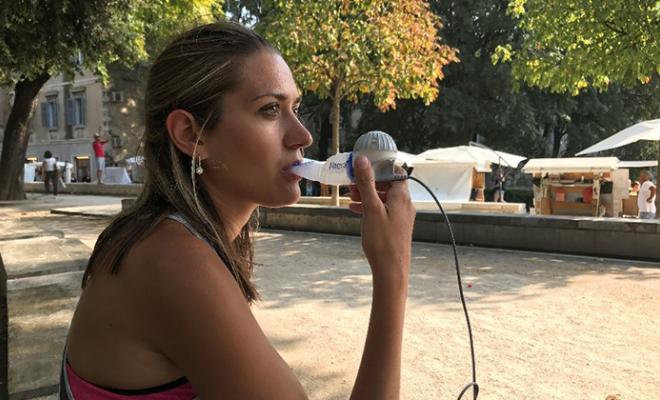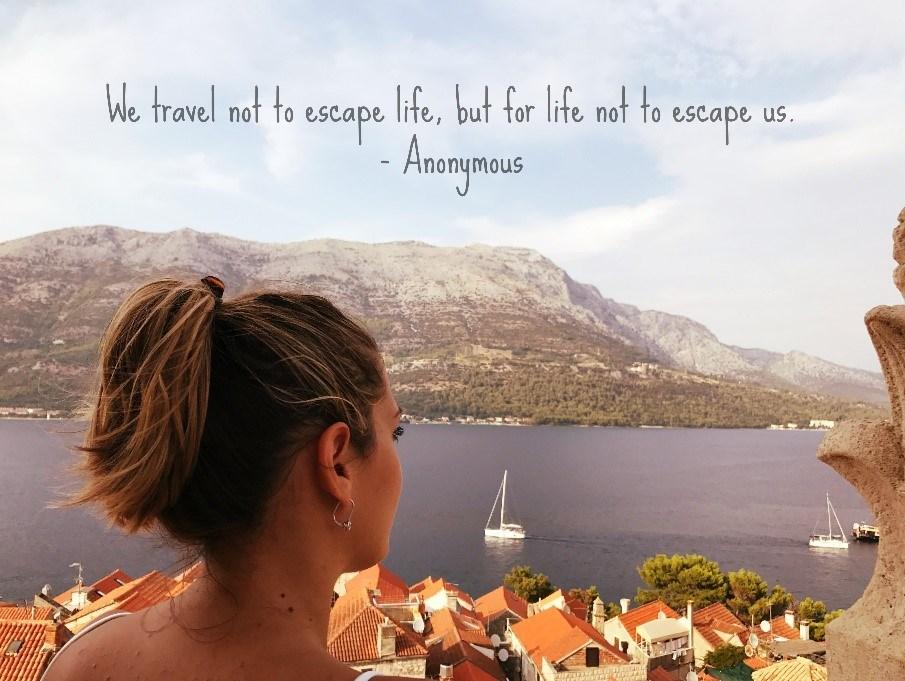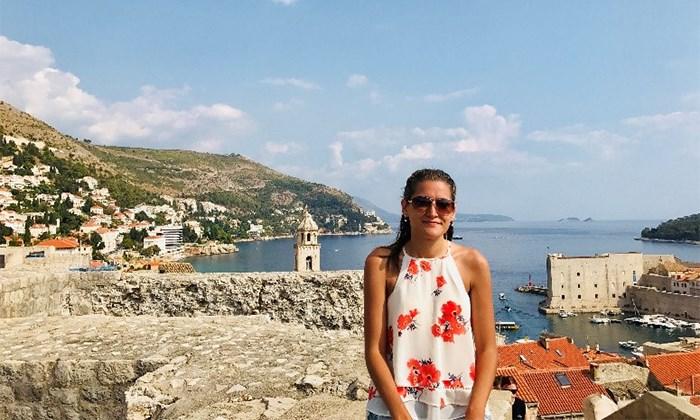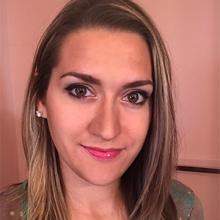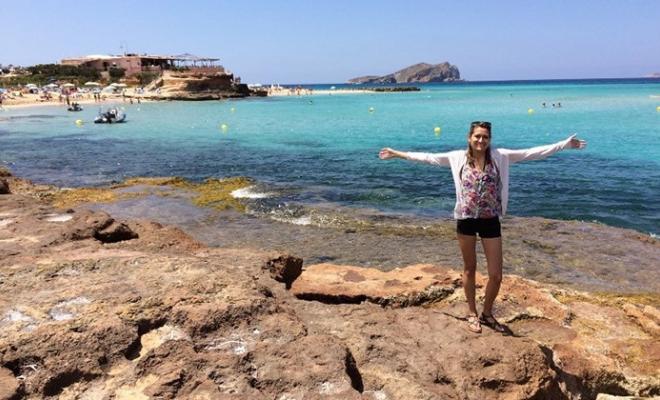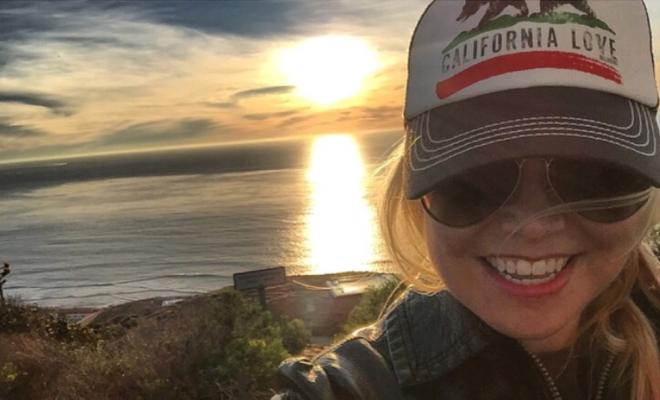Looking up at the rising wall of stone, sweat droplets beading on my forehead, I think about the hundreds of steps between me and the top of the walls of the city of Dubrovnik, Croatia. I want to see the view from the top, but I feel the discomfort of what-ifs welling inside me … what if I hold up the line going up the stairs because I need breaks? What if I pass out from shortness of breath? What if my lung collapses again from taking such heavy breaths with only 25 percent FEV1?
Those were my thoughts last August during my European adventure.
The first six months of 2017 had been difficult. I had three surgeries -- each two months apart -- on my lung because of a reoccurring lung collapse. I spent weeks in the hospital and then weeks recovering at home. I went from barely walking around my house to building up the strength to walk on the treadmill for 30 minutes a day, only to restart the process each time after the next two surgeries. There were moments I never thought I would get stronger, that I'd be confined to my house with 24/7 supplemental oxygen, chained to an oxygen concentrator that allowed me to breathe.
Slowly I got stronger and -- after the third surgery -- the lung held. I had been planning this trip since before my medical issues began, and I wanted to make it a reality. I already had to cancel a trip to Vegas for my 25th birthday and a Fourth of July get-together with my best friends. I would be heartbroken if I had to add this trip to that list.
In August, despite some hesitation, my doctors deemed me healthy enough to travel. Their final reasoning: My previous lung collapses had been gradual, occurring over a few days, so I would have time to get medical attention wherever I was in Europe.
In the days leading up to my trip, the fear of another lung collapse (pneumothorax) still terrified me. A pneumothorax occurs when air is trapped between your chest wall and your lung. This trapped air pushes on the lung, allowing less room for the lung itself in the chest cavity, thereby collapsing it.
When there is a decrease in air pressure at higher altitudes, air molecules expand, occupying more space. Because of my history of lung collapses, there was a chance that I might have a slight air pocket between my lung and chest wall. If so, the altitude change in an airplane could have expanded this air pocket, making the collapse much larger and dangerous.
Some might think it's too risky to travel outside the country if you have a chronic illness, where the possibility of needing medical attention is high, and the constant awareness of symptoms and management of medications and treatments are a necessity.
There certainly are times when the risks outweigh the benefits. In my situation, there will always be a risk, but the level of potential pleasure to be gained makes an attempt worthwhile.
Planning for the Trip
Being prepared was important and eliminated some of the anxiety associated with travel. It was also necessary to relax about the parts that were not in my control.
I made sure I had my flight insured and bought travel insurance, and I carried the documents with me. I counted and packed the amount of medications I would need, plus extra.
I did not worry about packing light. I require the amount of luggage of a family of four. In the past, this has embarrassed me. We all stereotype women and their extra bags, but I need: A rolling luggage bag for my vest, a roller for my oxygen concentrator, my suitcase of clothes and personal products, and a carry-on backpack of medications. I do not check any of my nebulizing medications and machine, inhalers, enzymes, and antibiotics in case my suitcase gets lost. These are the items I have to have, and it would be a nightmare tracking them down in a foreign country.
I opted for special services through the airline for assistance with getting from one gate to the next between flights and to help carry heavy bags. Having 25 percent lung function, it's tiresome to walk distances, and it's not possible for me to carry anything remotely heavy. This was the first time I had used this service. I've never liked being seen as different or needing special accommodations. However, I have realized, as my disease progresses, that doing everything everyone else does is not always possible, and it's OK.
And, it turned out to be a wise decision. As I got off one of my flights, I was met by an airline employee with a wheelchair and a sign with my name. I had 20 minutes before my next flight was to depart JFK airport in New York, and my gate was at the other end of the terminal. With only 10 minutes to go, this gentleman started running as he wheeled me through the airport. By the time we got to the gate, he was profusely sweating. I was the last one to board! I would have missed my flight without this assistance.
What I Learned
First, I learned to be comfortable with strangers seeing me doing CF-related stuff, like wearing a mask and using an oxygen concentrator on an airplane, and doing a breathing treatment on a park bench, while coughing and spitting into tissues. Here is a picture of me doing exactly that in Split, Croatia.
Many times, I did treatments away from the comfort of my hotel room. This leads me to my second lesson -- being flexible. If I had been too embarrassed or unwilling to leave my preferred accommodations for treatments, I would have skipped them and become sick.
I had to let go of these insecurities. I discovered that if I am comfortable and open about doing what I have to do to be healthy, then most people will be comfortable and accepting of it.
This leads me to my next point. A trip of this magnitude in my physical condition would have been stressful and daunting without the help of my family and travel partners. They carried my luggage, boiled my nebulizers every day while I was doing the vest treatment, and packed my backpack daily with tissues, a portable nebulizer, and medications.
Blessed and Lucky
Now, let's get back to those stairs up to the top of the wall in Dubrovnik. I decided to make the climb.
No, I didn't hold up the line. I simply stood against the wall and let people past me during frequent stops when I felt my heart racing and my breath ragged. No, I didn't pass out. A fresh fruit juice stand halfway up probably saved me. And no, my lung didn't collapse.
I made it. And, the view from the top was worth it.
I feel blessed for having seen such beautiful places. I feel lucky to have been in wonderful health for the duration. And, I feel accomplished to have been able to climb as many stairs and walk as many miles, having just a quarter of my lung capacity.
There is no way I'll let life escape me.

